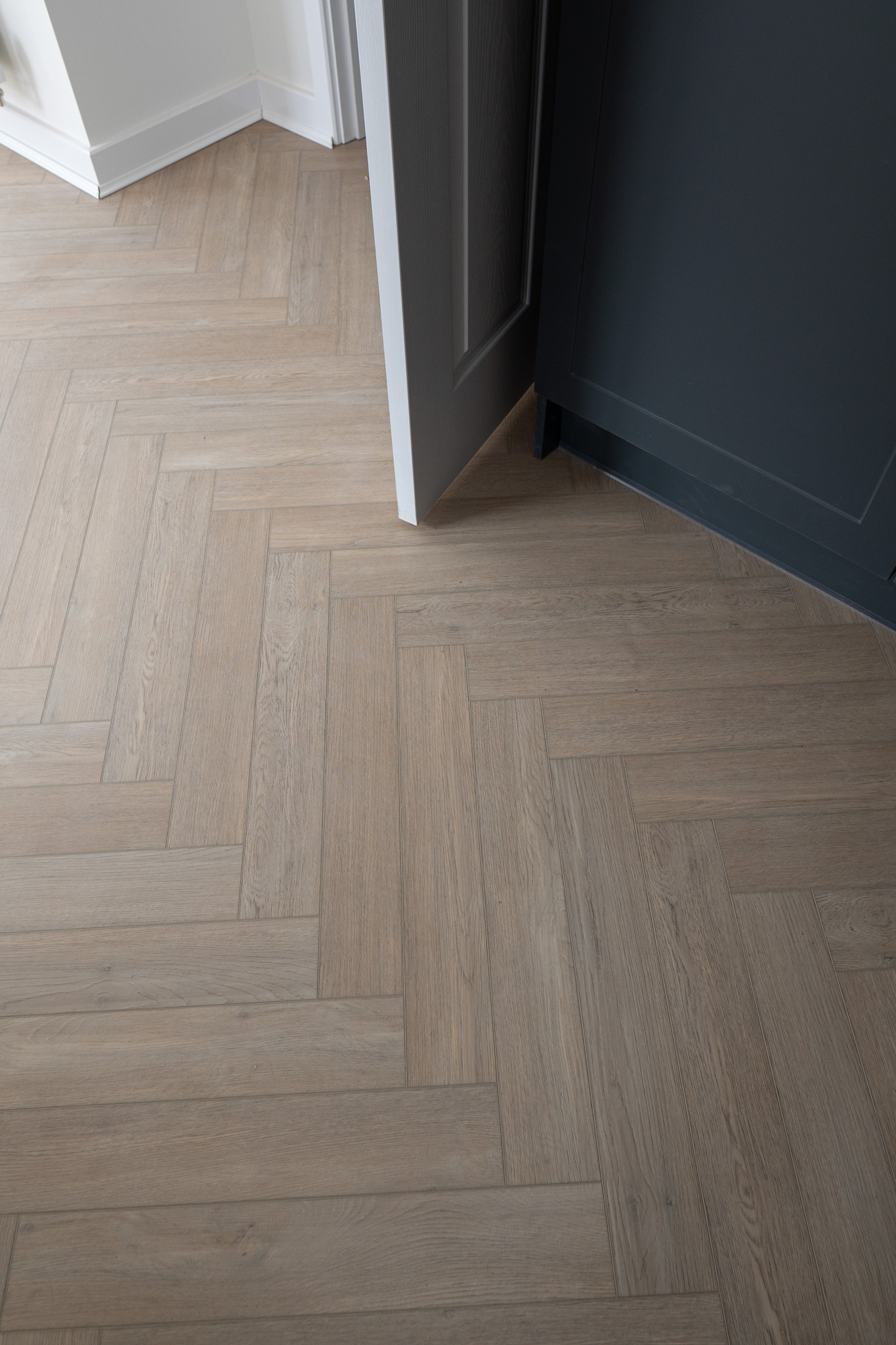Which Floor is Better – Vinyl or Engineered?

Whether vinyl or engineered wood flooring is better for you depends on your specific needs, preferences, and the context of your project. Both types of flooring have their advantages and disadvantages, so let’s compare them to help you make an informed decision:
Water and Moisture Resistance: Vinyl flooring is highly water-resistant and can be an excellent choice for areas prone to moisture, such as bathrooms, kitchens, and basements. It can withstand spills and moisture without warping or damage.
Durability: Vinyl is generally very durable and resistant to scratches, stains, and dents. It’s suitable for high-traffic areas and can withstand wear and tear.
Low Maintenance: Vinyl flooring is easy to clean and requires minimal maintenance. Regular sweeping and occasional mopping are usually sufficient to keep it looking good.
Cost-Effective: Vinyl flooring is often more budget-friendly than engineered wood, making it a cost-effective option for those looking to update their flooring on a budget.
Versatility: Vinyl flooring comes in a wide range of styles, patterns, and colours, including designs that mimic natural wood, stone, or tile. It offers a lot of design flexibility.
Natural Aesthetic: Engineered wood provides the authentic look and feel of real hardwood. The top layer is genuine wood veneer, offering a natural and warm aesthetic that many homeowners appreciate.
Durability: While it’s not as moisture-resistant as vinyl, engineered wood is more stable than solid hardwood and can handle moderate fluctuations in humidity. It’s suitable for most areas in a home, excluding extremely wet environments.
Refinishing: Engineered wood can be sanded and refinished a limited number of times, depending on the thickness of the top veneer layer. This can help prolong its lifespan.
Resale Value: Homes with genuine hardwood or engineered wood flooring often have higher resale values due to the premium quality and aesthetic appeal.
Sustainability: Some engineered wood products use sustainable sourcing practices and may be considered more environmentally friendly compared to solid hardwood.
In summary, the choice between vinyl and engineered wood flooring depends on your priorities:
- Choose Vinyl if you prioritise water resistance, durability, low maintenance, and a budget-friendly option. It’s particularly well-suited for areas with moisture concerns.
- Choose Engineered Wood if you value the natural aesthetic of real wood, durability, and the ability to refinish the floor. It’s a good choice for areas with moderate humidity levels.
Ultimately, consider your specific needs, the location of the flooring, your design preferences, and your budget when making the decision between vinyl and engineered wood flooring. Consulting with a flooring professional can also help you make the best choice for your situation.






